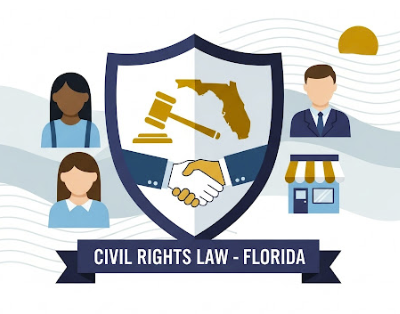Florida Civil Rights Act Thresholds: What Small Florida Employers Need to Know
- Mark Addington
- Jul 31, 2025
- 2 min read

Many small businesses in Florida assume that they are too small to face liability for discrimination or retaliation claims. While it is true that federal civil rights laws like Title VII of the Civil Rights Act of 1964 typically apply only to employers with 15 or more employees, the Florida Civil Rights Act (FCRA) tells a different story.
Understanding the threshold for coverage under FCRA is critical for small employers who want to avoid costly surprises.
The 15-Employee Myth
At the federal level, most anti-discrimination statutes, including Title VII, the Americans with Disabilities Act (ADA), and the Genetic Information Nondiscrimination Act (GINA), apply only if the employer has 15 or more employees for at least 20 calendar weeks in the current or preceding year.
Many Florida business owners incorrectly believe that this same standard protects them from liability under state law. However, Florida’s law differs in two crucial ways.
What the Florida Civil Rights Act Requires
The FCRA, found in Chapter 760 of the Florida Statutes, also requires 15 or more employees. But here’s where confusion sets in.
Unlike federal law, the FCRA does not limit coverage to employers who meet the 20-week rule. Instead, any business with 15 or more employees at the time of the alleged discriminatory act can be subject to liability, regardless of how long the company has had that number of workers.
Even more importantly, Florida courts have interpreted "employees" broadly. Part-time workers, temporary staff, and seasonal workers can all count toward the 15-employee threshold. This often results in small employers crossing the coverage line without realizing it.
Retaliation Claims and Individual Liability
In addition to covering discrimination claims based on race, gender, age, religion, national origin, disability, and marital status, the FCRA includes strong anti-retaliation provisions. Employees who oppose unlawful conduct or participate in an internal or external investigation are protected from adverse employment actions.
Florida courts have held that individual supervisors or decision-makers can be sued under the FCRA for retaliation, even when they were acting on behalf of the company. This makes proper training and policy enforcement all the more critical.
Why It Matters
Florida employers with fewer than 15 employees may feel safe from the reach of civil rights claims, but that confidence can be misplaced. A temporary staffing increase, hiring a few part-time interns, or shifting scheduling needs could bring a company under the FCRA's umbrella overnight.
Failing to appreciate the difference between federal and state coverage rules can leave a business exposed to claims it did not anticipate, with no easy procedural defense.
Takeaways for Employers
Evaluate your current workforce and determine whether your employee count, including part-time and temporary staff, may trigger FCRA coverage. Review your policies and ensure that both management and front-line supervisors understand their responsibilities under state law.
Even if your business is under the federal threshold, state law may still apply. In Florida, ignorance of the FCRA's broader coverage standard can be costly.




Comments